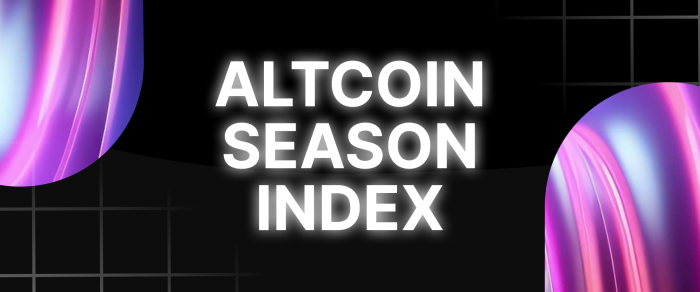What is DeFi?
DeFi stands for decentralized finance. It is intended to offer an alternative to centralized finance that has been the standard for hundreds of years. Lending protocols, lending platforms, and collateralized stablecoins are all examples of the use of this financial concept.
When crypto assets were in their infancy, DeFi was not possible due to the need for all transactions to be conducted on centralized exchanges or wallets. By removing the need for banks and other middlemen between you and your transactions, blockchain technology fulfilled Satoshi Nakamoto’s promise to provide trustless money, meaning you would no longer have to entrust third parties with your money. Since then, though, we have returned to employing centralized middlemen, such as cryptocurrency exchanges, custodial wallets, and other services that keep private keys on behalf of their users.
Why is decentralized finance necessary?
The primary benefit is that you can directly own your money, as DeFi offers you the same range of options as you would with conventional funds. No matter what happens to the price or liquidity of the cryptocurrency, when your assets are maintained on a decentralized platform, there is no intermediary in charge of them.
Blockchains have made it possible for developers to make cutting-edge financial products, including decentralized lending platforms, collateralized stablecoins, decentralized exchanges, remittance markets, derivatives markets, and much more. Decentralization makes it possible to test out novel forms of finance. Prior to blockchain, no one had the authority to issue their own currencies or make direct peer-to-peer loans. Credit could only be granted by a responsible third party, such as a bank or government.
Now, every person with an internet connection has access to financial services thanks to DeFi. Even those without formal bank accounts or credit histories in underdeveloped nations can obtain loans, save money, and trade on international financial markets. DeFi also helps entrepreneurs around the world reach milestones more quickly since it allows them access to cash without requiring them to go through traditional finance’s hurdles, such as having a large net worth or a proven track record at well-established enterprises.
What are some differences between centralized and decentralized finance?
There is nothing new about centralized financing — you have a bank you trust with your money, and they keep track of your debts. Our experience thus far with digital assets has been similar: You store your funds on a wallet or exchange. The wallets serve as middlemen who facilitate transactions between two individuals without having to send funds directly between them. When someone requests money, they can receive it from these wallets because they hold your private keys.
Decentralized finance, in contrast, operates as a free network where anyone can hold money or provide financial services without any limitations. Using a non-custodial wallet or trustless lending service, you control your money instead of giving it to other parties like exchanges or custodial wallets.
Decentralized finance can provide greater security and transparency than traditional money because it is built on open networks.
How does DeFi work?
Using DeFi services requires three components: smart contracts, crypto assets, and blockchains. The idea behind a smart contract is that it can execute a program based on certain conditions — for instance, transferring funds between two people after an asset is locked up as collateral on a blockchain. These digital currencies, such as Ethereum, allow you to send money directly between people without relying on third parties (such as banks and wallets) who may go out of business or disappear with your funds. And blockchain is the technology that allows all of this to be accomplished. Blockchain provides a public ledger for recording transactions without a central authority’s involvement that is immutable and secure. In addition, transactions are stored decentrally on many nodes so that records can’t be modified ex post facto.
What are some examples of DeFi services?
In addition to allowing people to store and transfer funds, DeFi opens up a whole new range of financial products that were previously unavailable due to the need for a third party. For instance, how can you be certain that someone will repay you when you borrow money from them? It is necessary to trust a third-party lender or credit reporting company with your information in order for them to keep track of your credit score and payment history when using traditional lending methods. Unlike centralized finance, DeFi utilizes smart contracts, which eliminate the need for trust between peers because deals are executed by computer code without the involvement of an intermediary. In other words, when all necessary conditions are met, you can obtain a loan from someone without having to worry that they will not repay you.
Why would you use decentralized finance instead of traditional finance?
DeFi services are open and available to everyone, giving users many more opportunities to experiment with various financial solutions. To gain access to them as a customer, you don’t need to reside in a wealthy nation or meet stringent KYC/AML criteria; you only need to download an app from the App Store and use it immediately. Although traditional finance already makes all of this possible, these services are centralized, which means they come with a price: exorbitant fees, sluggish performance, vulnerability to online security risks like hacks and outages, and unfair regulations that prioritize the needs of the few over the needs of the many.
What is the future of DeFi?
There are endless possibilities for decentralized finance to revolutionize how we manage and access money. DeFi can help unbanked and underbanked communities break down barriers and gain financial sovereignty like never before because it is accessible to everyone, no matter their background, wealth, or location. Furthermore, it allows people to take greater control over their personal information and digital security since centralized sources no longer have to deal with it on their behalf. Another benefit of DeFi is the ability to transact freely between different countries via smart contracts. There are no longer prerequisites for purchasing something online such as knowing someone in another country through a bank transfer (and paying exorbitant fees). As the last point, decentralized finance can have a significant impact on society as it enables people to create their own financial products that are accessible to everyone.



